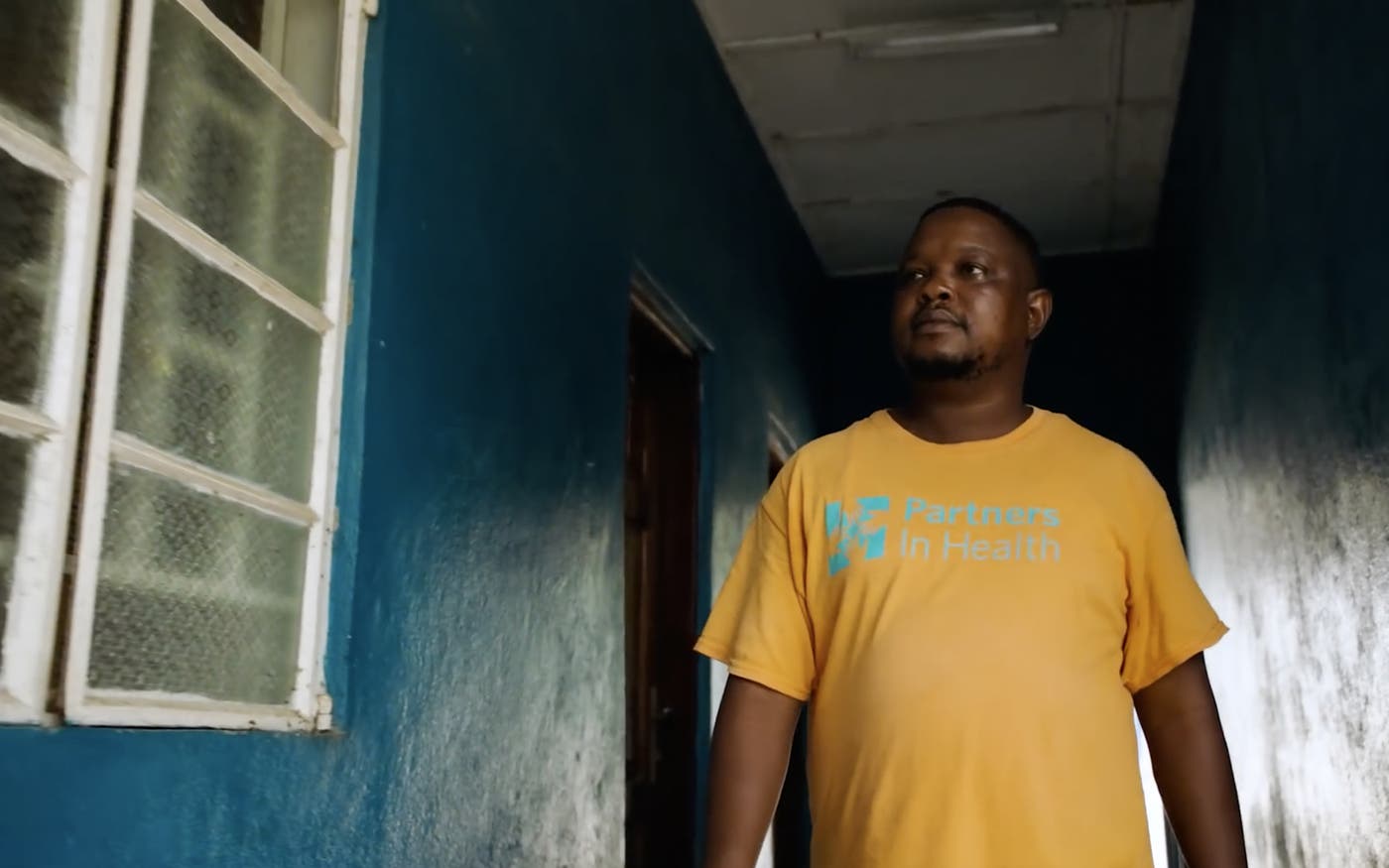
Against all odds
This doctor’s life story is almost as remarkable as his work
As a child, Dr. Mohamed Bailor Barrie thought he’d never become a doctor. Now he’s one of Sierra Leone’s health leaders.

Almost everyone who works in global health has an origin story.
Quarraisha and Salim Abdool Karim’s journey to becoming HIV/AIDS researchers started with a trip to Mexico, where they met a local dentist who used a bicycle-powered drill to treat his neighbors. Alain Nteff was inspired to create an app that provides support to pregnant women and new mothers after visiting a rural health clinic. Mine began with an eye-opening trip I took to Africa with Melinda back in 1993.
Dr. Mohamed Bailor Barrie’s story, however, is different from most. Growing up in poverty in northern Sierra Leone, he didn’t have one specific moment where he realized he wanted to work in health. Instead, he saw from a young age how quality health care helps people live better lives.
Mohamed was six years old when he decided to become a doctor. His neighbor was a nurse who treated people out of his home, and Mohamed loved watching him call people’s names one at a time to come in for care. But, for most of his childhood, his dream felt out of reach. There was no medical school in Sierra Leone at the time. To become a doctor, you had to have enough money to study abroad. Mohamed had to sell kerosene and meat by the side of the road just to afford his secondary school fees.
Then Sierra Leone opened its first medical school, and Mohamed earned a scholarship to attend. After he graduated, he turned down job offers from well-paying organizations abroad in order to practice medicine in his home country. “When I was walking back and forth to college, I would see kids suffering,” he says. “After that, I made up my mind to work in Sierra Leone.”
Mohamed chose to focus on a health challenge unique to his country. Sierra Leone endured a brutal civil war from 1991 until 2002. The rebels would often forcibly amputate the limbs of people who they thought supported the government. It’s estimated that around 27,000 Sierra Leoneans were disabled during the war. So, Mohamed helped start an organization called Wellbody Alliance to provide free care to amputee victims.
But it quickly became clear that Wellbody Alliance’s work needed to expand. Mohamed recalls meeting a woman named Khumba while visiting a camp where many amputees lived. Both of the woman’s arms had been removed, but her medical condition had nothing to do with her war wounds: she needed surgery to remove a liver abscess and couldn’t afford the procedure. Mohamed helped arrange to get it taken out and then cared for her while she recovered.
Mohamed and his colleagues decided to open up their clinic to all patients, not just amputees. Wellbody became the primary health care providers for the entire Kono District, providing care for anyone who needed it—from an expectant mother in need of prenatal care to a young person living with tuberculosis and HIV.
Their work took on a new urgency in 2014 when the Ebola virus began spreading in Sierra Leone. Wellbody Alliance teamed up with an amazing organization started by Paul Farmer called Partners in Health to treat the growing number of Ebola patients coming through their doors. “I felt proud that this clinic stayed opened and that we continued to serve patients,” he says. “It’s amazing how heroic our staff was.” Although more than 200 health care workers died from Ebola in Sierra Leone during the outbreak, none of the staff at Wellbody Alliance contracted the virus.
Mohamed also worked with the national government to design a robust contact tracing program. I’m particularly impressed by the system he helped develop to make it easier for people to quarantine. After someone tested positive for Ebola, community health workers would visit the homes of their close contacts. They would encourage them to get tested and talk through the logistics of isolating for the recommended three weeks. If they had any specific concerns—for example, if a family was worried about having enough food to eat—the health workers would contact other local aid groups and arrange for meals to be delivered.
Mohamed’s experience with Ebola helped him prepare for COVID-19. After Sierra Leone recorded its first case in March 2020, he was once again asked to help create the country’s contact tracing program (and to train its participants). Just like with Ebola, each tracer’s approach starts with being sensitive to an individual’s needs. They visit with exposed people in their homes to answer questions, dispel myths, and provide information about how to stay safe.
Although both Ebola and COVID-19 complicated his efforts, Mohamed continues to work towards his goal of improving health in his home country. “I want to see Sierra Leone with a robust health system where people don’t die from diseases that are preventable and where people can have the care that they deserve,” he says. Just last month, he became the new executive director of Partners in Health Sierra Leone. The organization recently broke ground on a new maternal health center in Kono, which Mohamed hopes will become a model for providing comprehensive care to women for the rest of the country.
I can’t wait to see what he and his team will accomplish next. Heroes like Mohamed are the reason we started our foundation more than 20 years ago and why Melinda and I remain committed to its work, even as we enter a new chapter of our lives. In every part of the world, you can find brilliant people doing amazing work to drive progress. It’s an honor to support their efforts to make sure that every person has the opportunity to live a healthy and productive life.


